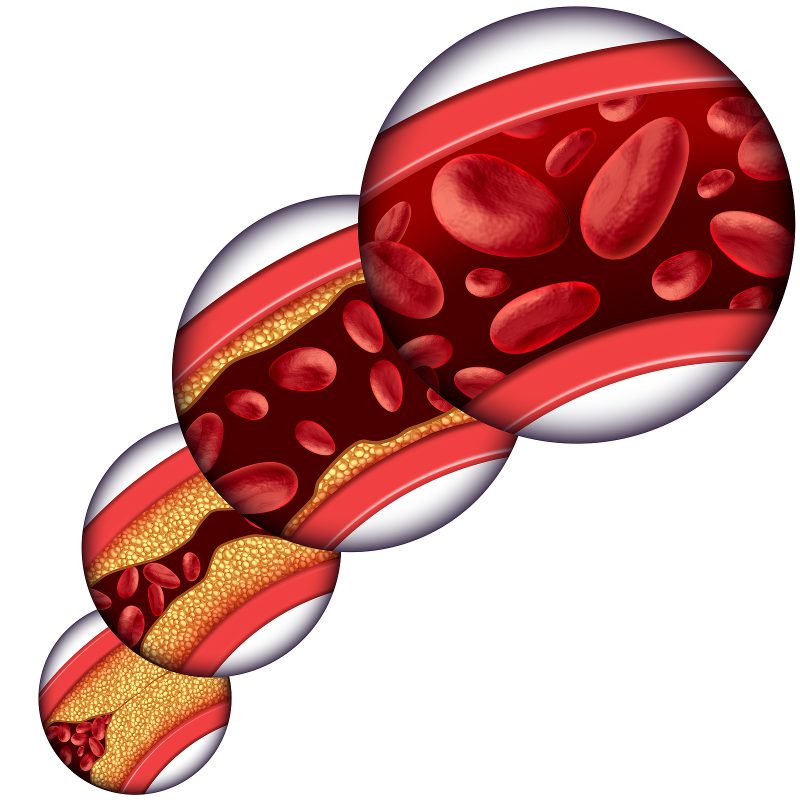Cholesterol has been a hot topic in recent years as public awareness of cholesterol’s impact on health has become understood. Many individuals are concerned about their cholesterol levels and the potential risks associated with high cholesterol. Let’s explore cholesterol, its significance, and whether you should be concerned about it.
Understanding Cholesterol
Cholesterol is a fat-like substance that is involved in various functions in the body, including:
- Hormone production
- Cell membrane formation
- Digestion
It is categorized into main 2 types: low-density lipoprotein (LDL) and high-density lipoprotein (HDL). LDL cholesterol is often called “bad” cholesterol, due to its tendency to build up in arteries leading to plaque formation and increased risk of heart disease. HDL cholesterol is typically called “good” cholesterol because it helps remove excess LDL cholesterol from the bloodstream.
Understanding Risk Factors
A variety of factors can influence cholesterol levels, including genetics, sex, age, diet, physical activity, and certain medical conditions. Other risk factors such as smoking, high blood pressure, obesity, and diabetes, can further increase risks associated with high cholesterol. High cholesterol levels often result from a combination of genetic predisposition and lifestyle. Elevated cholesterol levels are associated with increased risk of developing cardiovascular diseases such as stroke, heart attack, and various vascular diseases.
Should You Be Worried About Your Cholesterol?
Monitoring cholesterol levels and understanding your individual risk factors is important. Rather than worrying about your cholesterol levels rising, take a proactive approach to managing cholesterol and staying healthy. As noted above, cholesterol is important for various functions in the body. Managing cholesterol is really about ensuring your cholesterol levels are healthy for you and your unique health picture.
Consult with your healthcare provider to assess your overall cardiovascular risk and better understand your cholesterol. A lipid profile test is generally done to measure your total cholesterol, LDL, HDL, and triglyceride levels. These results will guide treatment and help you and your healthcare provider establish a plan to fit your unique needs.
Healthy Lifestyle Habits for Cholesterol Management
- Balanced Diet: Consume a diet rich in vegetables, fruits, whole grains, lean proteins, and healthy fats. Limit intake of trans fats and saturated fats, and sugary foods and beverages.
- Movement: Engage in physical movement. Individual needs vary, however the American Heart Association recommends 150 minutes per week of moderate intensity aerobic exercise or 75 minutes per week of a combination of aerobic and strength training movement.
- Avoid Smoking: Smoking lowers HDL cholesterol (the good stuff) and damages blood vessels. Quitting smoking has been shown to improve cholesterol profile and overall cardiovascular health.
- Maintain a Healthy Habitus: Excess body weight, particularly around the waistline, can contribute to higher cholesterol levels.
- Manage Chronic Diseases: Conditions such as diabetes, high blood pressure, and stress can all contribute to increased cholesterol levels. Work with your healthcare provider to manage your healthcare conditions effectively.
Cholesterol Conclusions
While it is important to be aware of your cholesterol levels and associated risks, excess worry can lead to unnecessary stress. Focus on a proactive approach to cholesterol management, including nutrition, movement, regular wellness checks, and open communication with your healthcare provider. By understanding and managing your cholesterol effectively, you can significantly reduce risks associated with high cholesterol. Small lifestyle changes can have a big impact on your health, so don’t wait, reach out to our providers at Natural Path Healthcare today and create the whole person wellness plan that’s right for you!

